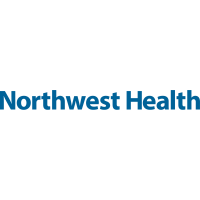Home
Contact Us
Press Releases
A Silent Threat: Early Detection is Key to Saving Lives in Pancreatic Cancer Cases
Hidden in plain sight, pancreatic cancer can go undetected for months, revealing itself only after it has dangerously grown or spread to other organs.
Diagnosed in more than 66,000 U.S. patients each year, pancreatic cancer often does not cause any signs or symptoms. An estimated 51,750 people will die of the disease this year, according to the American Cancer Society.
November is National Pancreatic Cancer Awareness Month, and one of the best defenses against this deadly disease is early detection, says Anish Chopra, M.D., a gastroenterologist with Northwest Medical Group.
“Pancreatic cancer is often silent in its early stages, making early detection crucial to improving survival rates,” Dr. Chopra said. “By the time symptoms appear, the disease has often advanced, which is why awareness of the disease and getting diagnosed as quickly as possible are critical.”
Symptoms of pancreatic cancer include:
● Belly or back pain
● Enlargement of gallbladder or liver
● Fatigue or abnormal physical weakness
● Itchy skin (can be caused by jaundice)
● Jaundice (yellowing of the skin and in the whites of the eyes)
● Large, light-colored, greasy stools
● Loss of appetite
● Nausea and vomiting
● Pain or swelling in arm or leg (could be caused by blood clot)
● Sudden onset of Type 2 diabetes
● Weight loss
Treatment often depends on the type and stage of cancer, though interventions include surgery, radiation therapy, chemotherapy, targeted therapy and immunotherapy.
“While we don’t know what causes pancreatic cancer, there are factors that can put patients at a higher risk, including tobacco use, obesity, Type 2 diabetes and heavy exposure to cancer-causing carcinogens,” Dr. Chopra said. “These are all risk factors that patients can influence through lifestyle choices and preventive care.”
Other risk factors include age, sex, race and family history. As people age, their risk for pancreatic cancer also rises, with nearly all diagnoses occurring in people older than 45. Men and African-Americans are slightly more likely to develop pancreatic cancer.
“Research shows inherited gene mutations can cause as many as 10% of pancreatic cancers,” Dr. Chopra said. “Genetic syndromes that may cause this disease include hereditary breast and ovarian cancers, familial atypical multiple mole melanoma (FAMMM) syndrome, hereditary pancreatitis and other genes with defects passed from parents to their children.”
While there are no screening tests that have been shown to lower a person’s risk of dying from pancreatic cancer, genetic testing may help determine whether a person is at increased risk.
“It’s important to talk to your doctor about your individual risk of developing pancreatic cancer and any steps you should take to reduce your risk,” Dr. Chopra said. “It’s also critical if someone is experiencing pancreatic cancer symptoms to seek medical attention immediately. Time is of the essence.”
About Northwest Health
Northwest Health is a regional healthcare system committed to providing communities in Northwest Indiana with high-quality, accessible health care — from highly specialized care and surgical services to more routine primary care. The system of more than 60 access points includes three hospitals, five emergency departments, urgent care centers, outpatient surgery centers, an ambulance service, and physician offices. A compassionate team of caregivers work hard to fulfill its mission to help people get well and live healthier. For more information, visit NWHealthIN.com.
Northwest Health - La Porte
-
Kelly Credit Market Director, Marketing & Community Relations
- November 25, 2024
- (219) 983-8586
- Send Email
LEAP News
- La Porte Economic Advancement Partnership Announces Ready2Work Childcare Voucher Program
- Resort Apartments Expansion Sought
- Patrick Industries Announces Plans to Open a New Facility in La Porte, Indiana
- U.S. Chamber of Commerce Awards the La Porte Economic Advancement Partnership with 5-Star Accreditation
- Quincy Development begins Construction in the Thomas Rose Industrial Park
- Dermody Announces Agreement with Rural King to Open in La Porte
- Downtown La Porte Gets Community Treatment with Help of La Porte County Family YMCA & LEAP
- La Porte and Sullivan Named INspire Idea Competition Recipients
- INspire Idea Competition Selects Five Finalists
- Flaherty & Collins Properties Announces Updated Plans For The Strand A $35M Mixed-Use Development
- GLPCC and GLEDC Forge a New Alliance Designed to Grow La Porte’s Competitive Advantage







